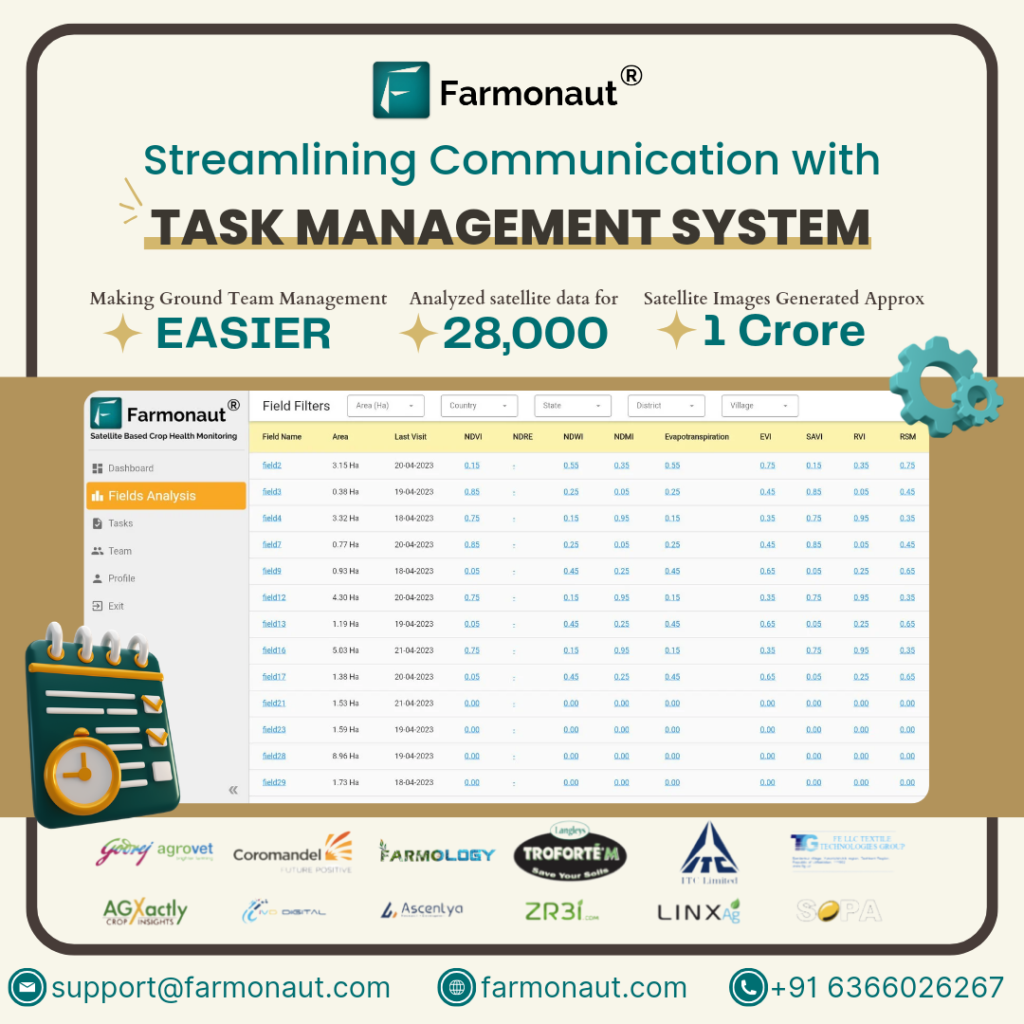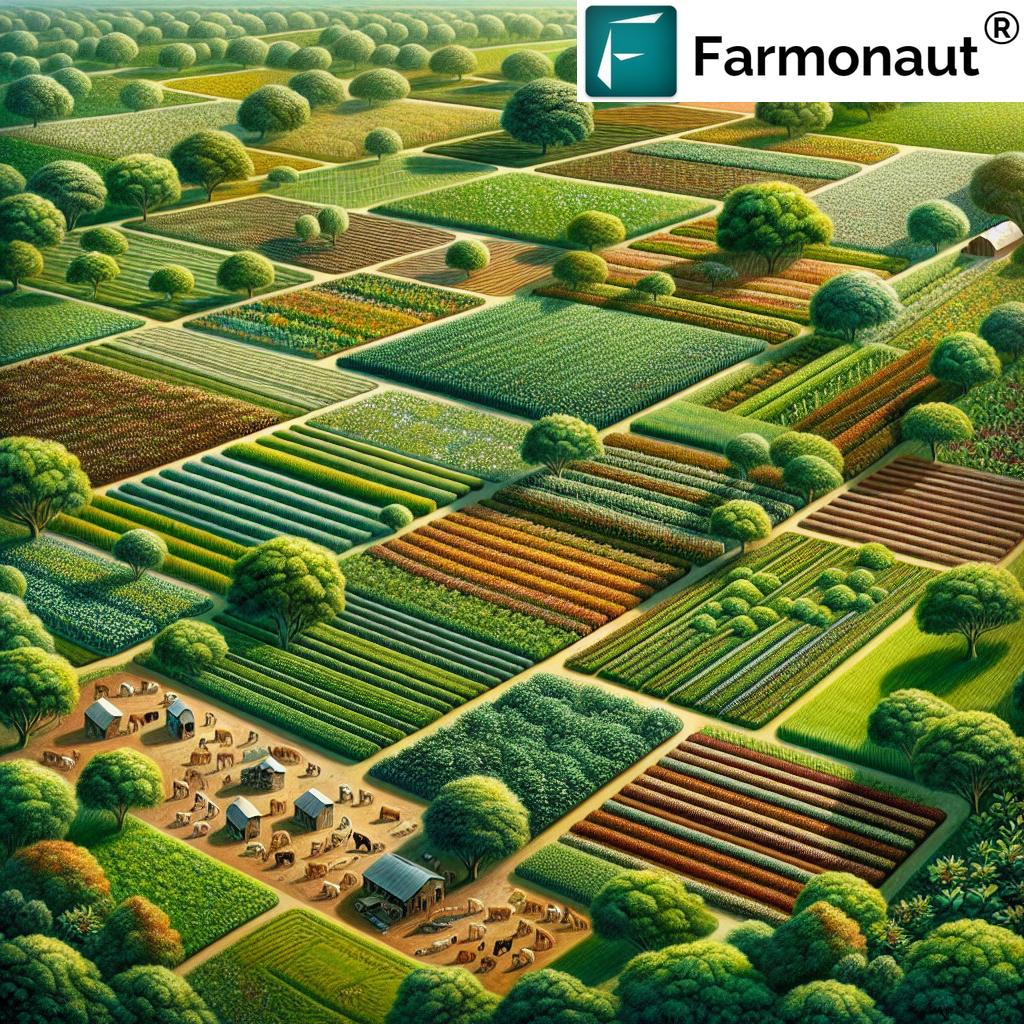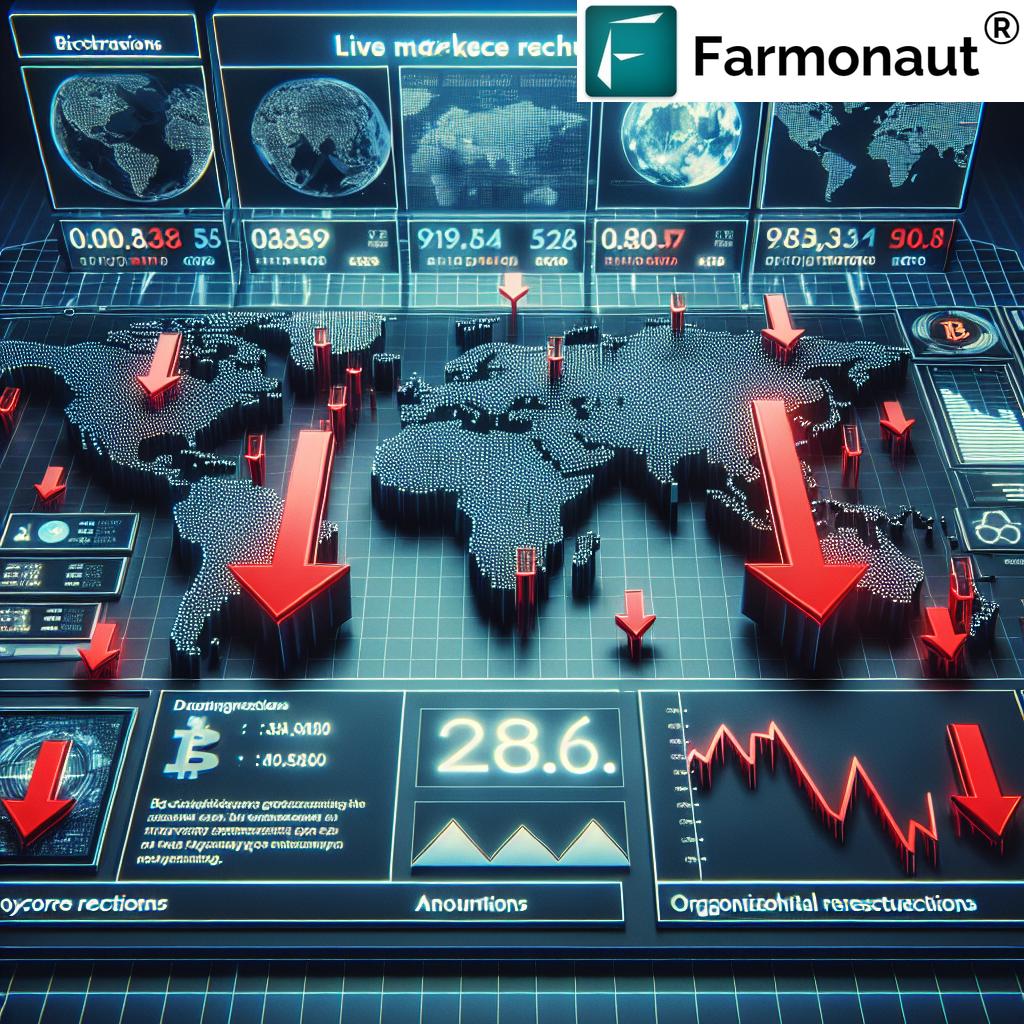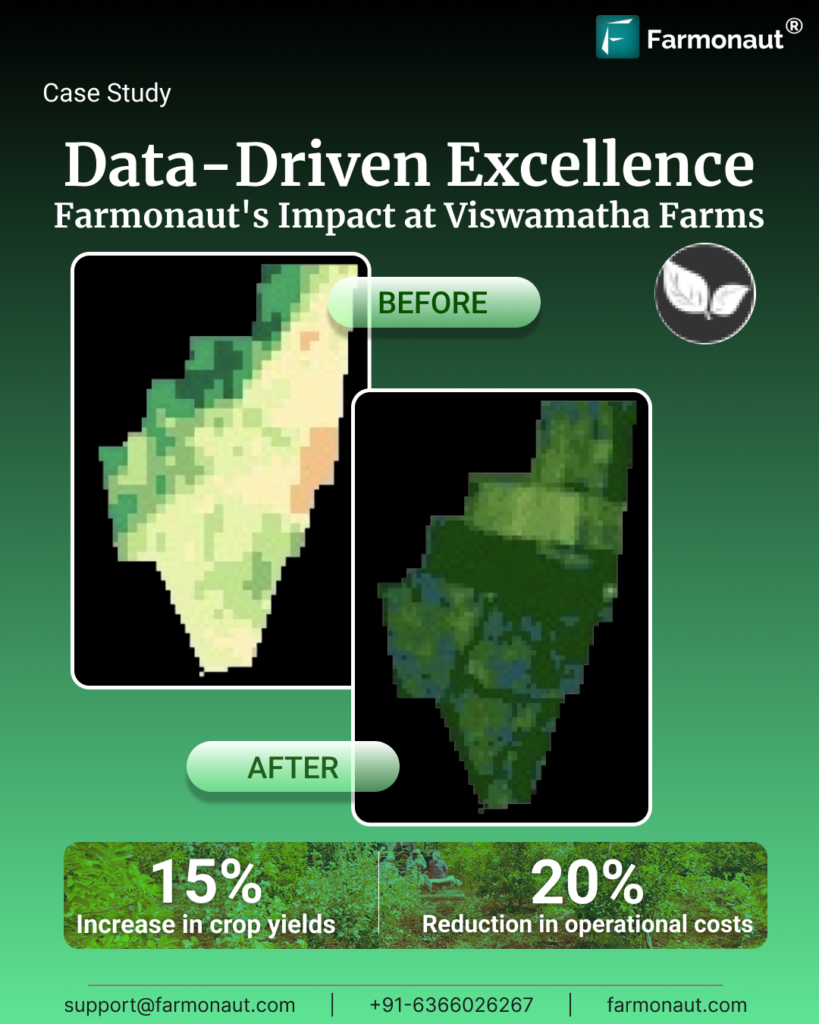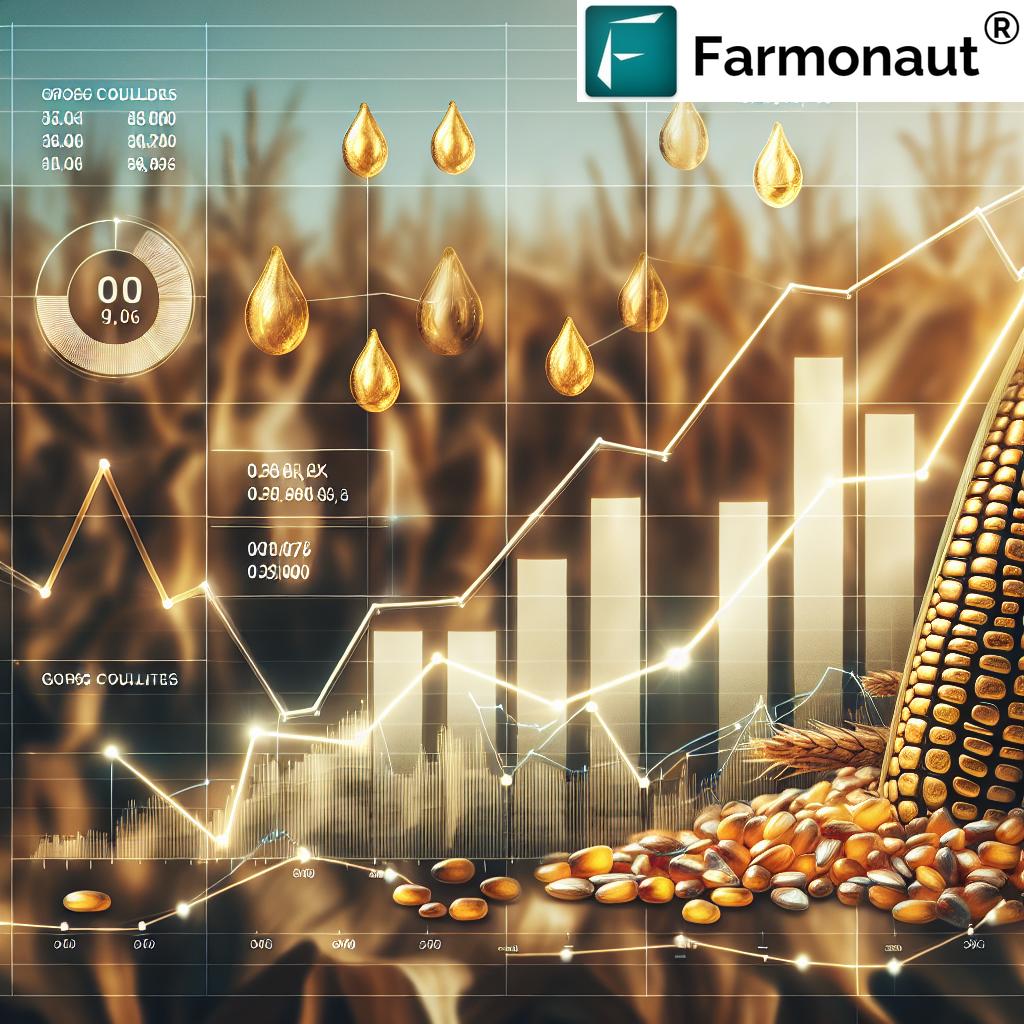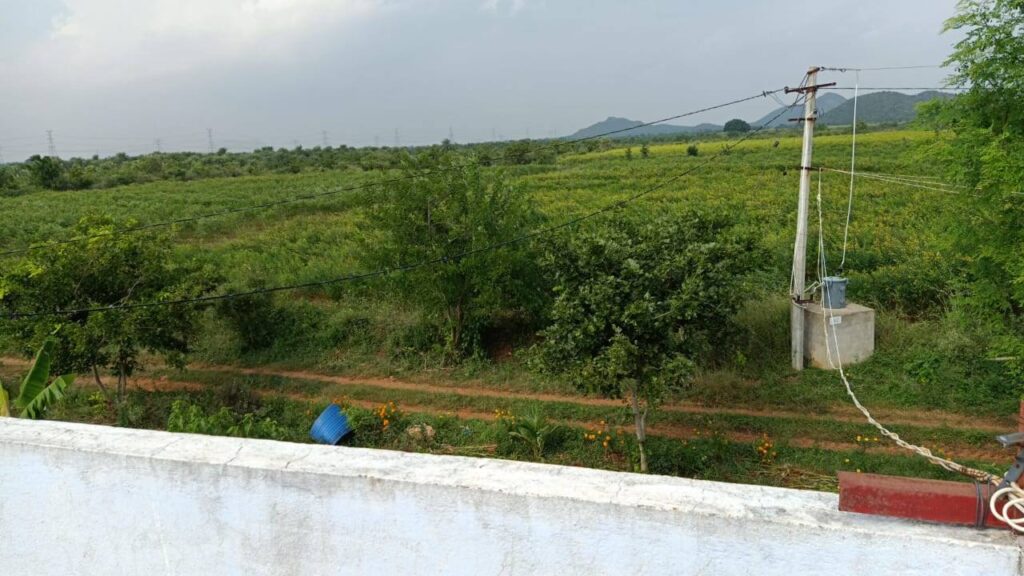Revolutionizing Farm Equipment Financing: Your Ultimate Guide to Used Ag Machinery Marketplace
“The agricultural equipment marketplace offers over 200 types of machinery, from tractors to specialty crop equipment.”
Welcome to our comprehensive guide on revolutionizing farm equipment financing and navigating the used agricultural machinery marketplace. In this ever-evolving world of farming technology, staying informed about the latest trends and opportunities is crucial for success. Whether you’re a small family farm or a large-scale agricultural operation, understanding your options for acquiring and financing farm equipment can significantly impact your bottom line.
At Farmonaut, we’re committed to empowering farmers with cutting-edge technology and data-driven insights. While we don’t directly sell or finance farm equipment, our satellite-based farm management solutions can help you make informed decisions about your machinery needs and overall farm management strategies.
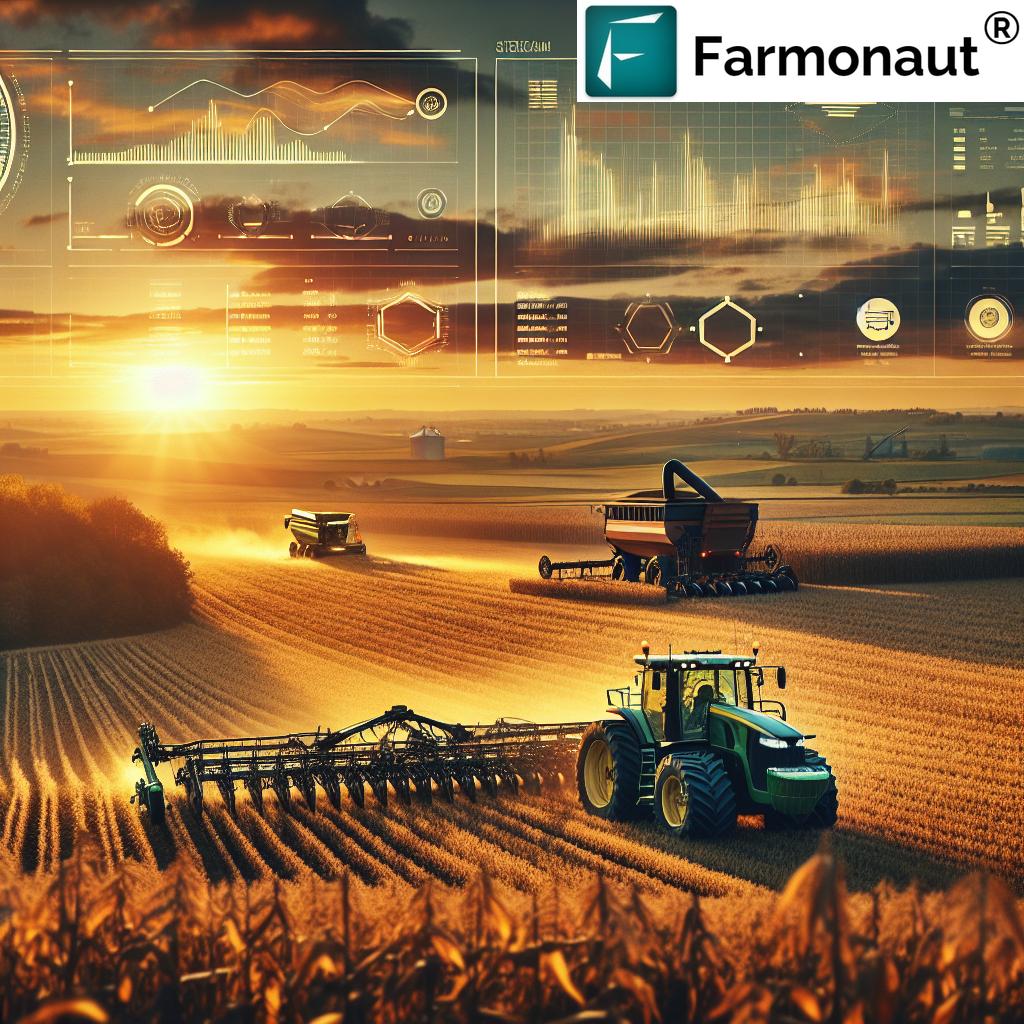
The Booming Used Farm Equipment Market
The market for used farm equipment is thriving, offering farmers a cost-effective alternative to purchasing new machinery. With the rising costs of new equipment, many farmers are turning to the used market to find quality machinery at more affordable prices. This trend has created a bustling marketplace where farmers can find everything from tractors and harvesters to specialty crop equipment and precision farming technology.
Key benefits of purchasing used farm equipment include:
- Lower initial investment
- Reduced depreciation
- Wider variety of makes and models
- Opportunity to acquire higher-end equipment at a fraction of the new price
As we delve deeper into this guide, we’ll explore various aspects of the used farm equipment market, financing options, and how technology like Farmonaut’s can complement your equipment decisions.
Financing Options for Used Agricultural Machinery
Financing used farm equipment requires careful consideration of various options available in the market. Let’s break down some of the most common financing methods and their pros and cons:
| Financing Type | Typical Interest Rates | Loan Term (years) | Down Payment | Pros | Cons |
|---|---|---|---|---|---|
| Bank Loans | 4-8% | 3-7 | 10-20% |
|
|
| Equipment Leasing | 5-10% | 2-5 | 0-10% |
|
|
| Manufacturer Financing | 3-7% | 3-6 | 5-15% |
|
|
When considering financing options, it’s essential to evaluate your farm’s cash flow, credit score, and long-term equipment needs. Many lenders now offer pre-approval processes, which can give you a clearer picture of your budget before you start shopping for equipment.
Navigating the Used Tractor Market
Tractors are the workhorses of any farm, and finding the right used tractor can significantly impact your operations. When exploring the used tractor market, consider the following factors:
- Hours of use
- Maintenance history
- Compatibility with your existing equipment
- Fuel efficiency
- Availability of parts
Popular brands in the used tractor market include John Deere, Case IH, New Holland, and Kubota. Each brand has its strengths, and the best choice depends on your specific needs and preferences.
Tip: Use Farmonaut’s satellite-based crop health monitoring to assess your field conditions and determine the most suitable tractor specifications for your farm.
Harvesting Equipment: Finding the Right Fit
Harvesting equipment is crucial for maximizing crop yields and efficiency. When searching for used harvesting machinery, consider:
- Crop compatibility
- Capacity and throughput
- Technology integration (GPS, yield monitoring)
- Ease of maintenance
Popular types of harvesting equipment include combines, forage harvesters, and specialty crop harvesters. Each type has its unique features and considerations, so it’s essential to match the equipment to your specific crop and farm size.
Planting and Applicator Equipment
Efficient planting and application of fertilizers and pesticides are key to maximizing crop yields. When looking for used planting and applicator equipment, consider:
- Precision capabilities
- Row spacing options
- Tank capacity (for applicators)
- Compatibility with your tractor
Modern planting equipment often comes with advanced features like variable rate technology and automatic section control. These features can significantly improve efficiency and reduce input costs, even in used equipment.
“Used farm equipment can cost 30-50% less than new machinery, making it an attractive option for budget-conscious farmers.”
Hay and Forage Equipment
For livestock farmers or those producing hay for sale, quality hay and forage equipment is essential. Key types of equipment in this category include:
- Mowers and mower-conditioners
- Rakes and tedders
- Balers (round and square)
- Forage harvesters
When evaluating used hay and forage equipment, pay close attention to the condition of cutting components, bale density capabilities, and overall wear and tear.
Tillage and Soil Management Equipment
Proper soil management is fundamental to crop success. Used tillage equipment can offer great value, but it’s important to consider:
- Compatibility with your soil type and conservation practices
- Working width and depth capabilities
- Wear on critical components (discs, shanks, etc.)
Popular types of tillage equipment include plows, cultivators, disc harrows, and chisel plows. The choice depends on your specific soil management strategy and crop rotation.
Grain Handling and Storage Solutions
Efficient grain handling and storage can significantly impact your farm’s profitability. When looking at used grain equipment, consider:
- Capacity and throughput
- Compatibility with your existing setup
- Energy efficiency
- Potential for expansion
Key components of a grain handling system include augers, conveyors, grain dryers, and storage bins. Investing in quality used equipment can help you build a robust grain management system without breaking the bank.
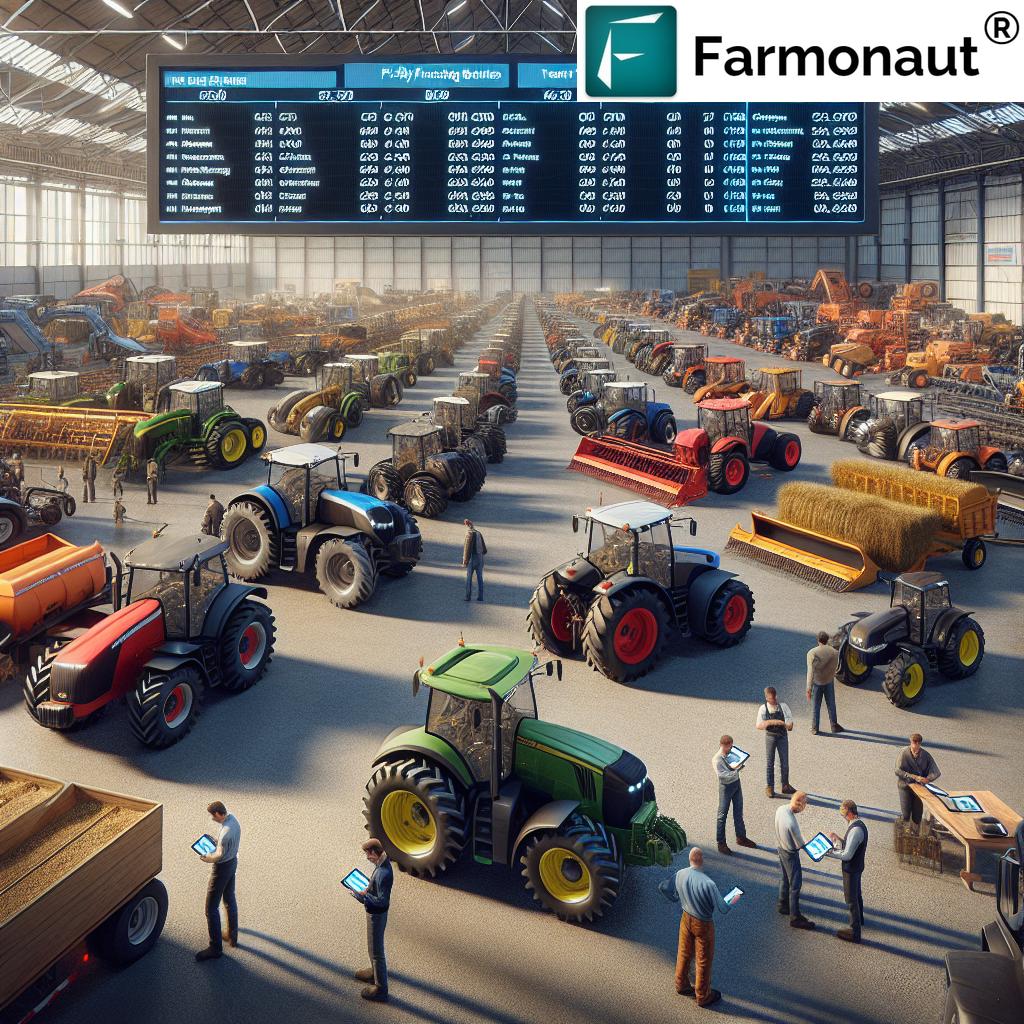
Loaders, Lifts, and Material Handling
Efficient material handling is crucial for any farm operation. When evaluating used loaders and lifts, consider:
- Lift capacity and height
- Attachment options
- Fuel efficiency
- Maintenance requirements
Popular options include skid steer loaders, telehandlers, and front-end loader attachments for tractors. These versatile machines can significantly improve efficiency in various farm tasks.
Trucks and Trailers for Agricultural Use
Transportation is a critical aspect of farm operations. When looking at used trucks and trailers, consider:
- Load capacity
- Fuel efficiency
- Compatibility with your existing equipment
- Maintenance history
From pickup trucks for everyday use to semi-trailers for large-scale grain transport, choosing the right vehicles can significantly impact your farm’s efficiency and bottom line.
Livestock Equipment Essentials
For farms with livestock, specialized equipment is essential. Key categories of used livestock equipment include:
- Feeding equipment (mixers, feeders)
- Handling equipment (chutes, gates, scales)
- Manure management systems
- Milking systems (for dairy farms)
When evaluating used livestock equipment, pay close attention to cleanliness, wear on critical components, and compliance with current animal welfare standards.
Specialty Crop Equipment
Farmers growing specialty crops often require unique equipment. When looking for used specialty crop machinery, consider:
- Crop-specific features and adaptability
- Precision capabilities
- Ease of cleaning and maintenance
- Compatibility with post-harvest processing
Examples of specialty crop equipment include vegetable harvesters, orchard sprayers, and nut harvesting equipment. The used market can be an excellent source for these often expensive machines.
Construction Equipment for Farm Use
Many farms benefit from having construction equipment on hand. Popular types of used construction equipment for farms include:
- Backhoes
- Mini excavators
- Skid steers
- Dozers
When evaluating used construction equipment, consider its versatility, attachment options, and how well it fits with your farm’s specific needs.
Lawn and Garden Equipment for Diverse Farm Operations
While often overlooked, quality lawn and garden equipment can be essential for maintaining farm appearances and managing smaller plots. Consider:
- Riding mowers
- Utility vehicles
- Tillers and cultivators
- Sprayers and spreaders
Used lawn and garden equipment can offer great value, especially for smaller farms or those with diversified operations.
Navigating Equipment Auctions
Farm equipment auctions can be an excellent source for used machinery. Tips for success at auctions include:
- Research equipment values beforehand
- Inspect equipment carefully before bidding
- Set a firm budget and stick to it
- Consider transportation costs
- Understand the auction’s terms and conditions
Online auctions have become increasingly popular, offering a wider selection of equipment and the convenience of bidding from anywhere.
Equipment Transportation Services
Once you’ve purchased used equipment, getting it to your farm is the next challenge. Consider:
- Local vs. long-distance transport options
- Insurance coverage during transport
- Permitting requirements for oversized loads
- Timing of delivery to coincide with your schedule
Many auction houses and equipment dealers offer transportation services or can recommend reliable third-party transporters.
Leveraging Technology in Equipment Decisions
While Farmonaut doesn’t directly sell or finance farm equipment, our technology can play a crucial role in your equipment decisions. Our satellite-based crop health monitoring and AI-driven advisory system can help you:
- Assess your fields’ needs more accurately
- Determine the most suitable equipment specifications
- Optimize equipment usage based on real-time crop data
- Plan for future equipment needs based on crop performance trends
By integrating Farmonaut’s insights with your equipment strategy, you can make more informed decisions that align with your farm’s specific needs and conditions.
Explore Farmonaut’s API for custom integrations
Custom Equipment Solutions
Sometimes, off-the-shelf equipment doesn’t meet specific farm needs. In such cases, consider:
- Working with local fabricators to modify existing equipment
- Exploring custom-built options for unique requirements
- Balancing the cost of customization with potential productivity gains
Custom solutions can be particularly valuable for specialty crop farmers or those with unique operational challenges.
Maintenance and Repair Considerations
When investing in used equipment, factor in maintenance and repair costs:
- Budget for regular maintenance and potential repairs
- Consider the availability of parts for older models
- Explore extended warranty options for major purchases
- Invest in training for your team on equipment maintenance
Proper maintenance can significantly extend the life of your used equipment and protect your investment.
The Future of Farm Equipment and Technology
As we look to the future, the integration of technology in farm equipment continues to advance. Trends to watch include:
- Autonomous and semi-autonomous machinery
- Increased use of IoT sensors for predictive maintenance
- Integration of equipment data with farm management software
- Electrification of farm vehicles and equipment
Staying informed about these trends can help you make forward-thinking decisions when investing in used equipment.
Check out our API Developer Docs for more insights
Conclusion
Navigating the used farm equipment marketplace and financing options can be complex, but it offers significant opportunities for farmers to acquire quality machinery at affordable prices. By leveraging resources like Farmonaut’s satellite-based farm management solutions, you can make more informed decisions about your equipment needs and optimize your farm’s operations.
Remember, the key to success in the used equipment market is thorough research, careful inspection, and a clear understanding of your farm’s specific needs. Whether you’re in the market for tractors, harvesters, or specialty equipment, there are opportunities to find quality used machinery that can help drive your farm’s productivity and profitability.
As you explore your options, consider how technology like Farmonaut’s can complement your equipment strategy, providing valuable insights that inform your decisions and help you maximize the return on your investment.
Frequently Asked Questions (FAQ)
- Q: How can I determine the fair market value of used farm equipment?
A: Research recent sales of similar equipment, consult price guides, and consider factors like age, hours of use, and condition. - Q: Are there tax benefits to purchasing used farm equipment?
A: Yes, many countries offer tax deductions or credits for farm equipment purchases. Consult with a tax professional for specific advice. - Q: How can Farmonaut’s technology help me choose the right equipment?
A: While Farmonaut doesn’t sell equipment, our satellite-based crop monitoring can help you assess field conditions and productivity, informing your equipment needs. - Q: What should I look for when inspecting used farm equipment?
A: Check for signs of wear, review maintenance records, test all functions, and consider hiring a professional mechanic for thorough inspections. - Q: How has the COVID-19 pandemic affected the used farm equipment market?
A: The pandemic has increased demand for used equipment in many areas, potentially affecting prices and availability. Stay informed about market trends in your region.







